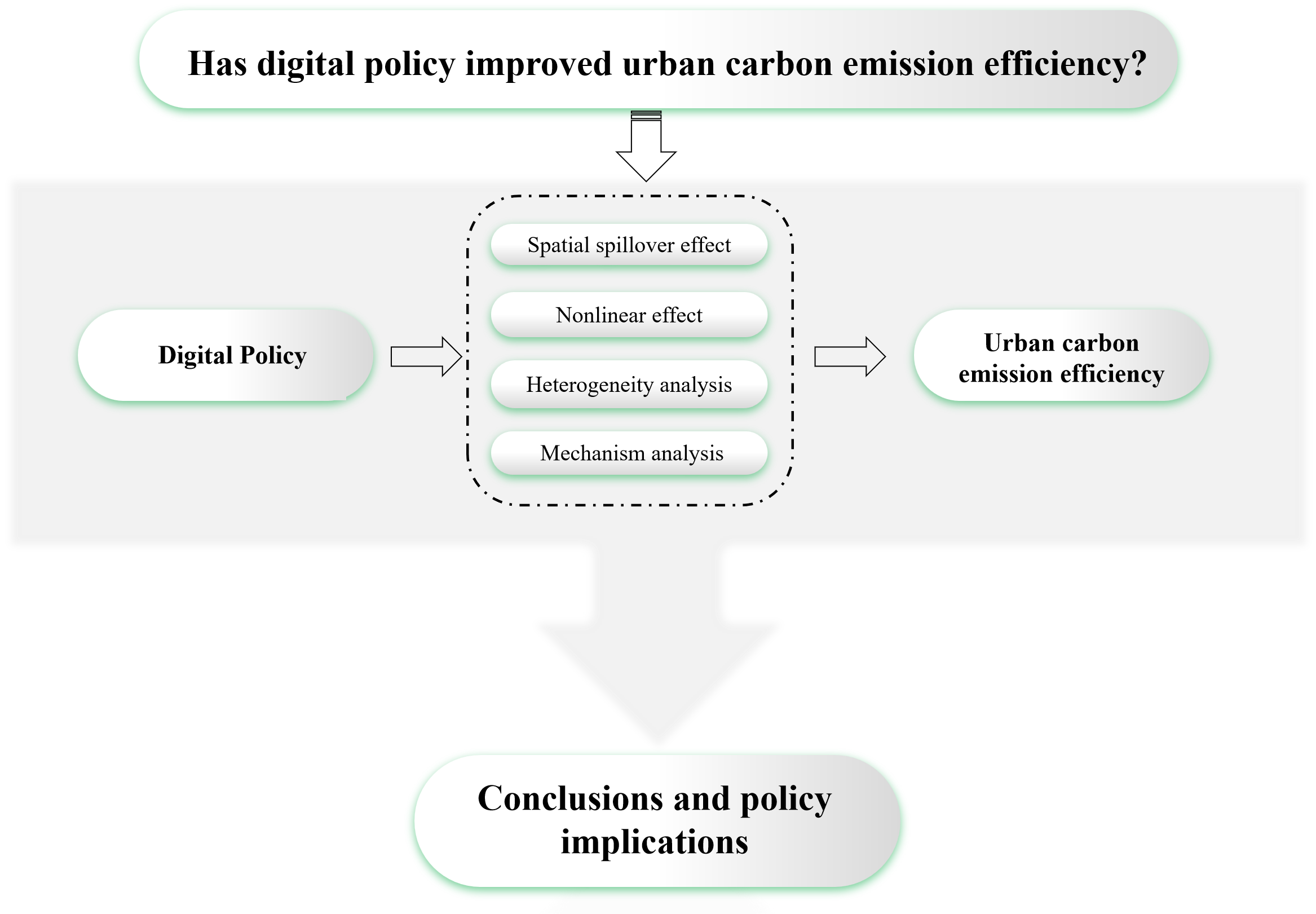
In the context of the current technological revolution and industrial transformation, the digital economy has emerged as a strategic imperative. It is essential to investigate the influence of digital policies on urban carbon emission efficiency and to elucidate the underlying mechanisms. Such research can provide both theoretical underpinnings and empirical evidence for the evaluation and refinement of digital policy frameworks. This paper utilizes panel data at the city level within China, employing the National Big Data Comprehensive Pilot Zone (NBDZ) as a proxy for digital policy. The study employs the Meta-frontier Non-radial Directional Distance Function (MFNDDF) method to quantify carbon emission efficiency. Furthermore, it leverages the Difference-in-Differences (DID) model to assess the impact and mechanisms of digital policy on enhancing urban carbon emission efficiency. The study finds: (1) NBDZ significantly promote urban carbon emission efficiency, a conclusion that remains valid after undergoing placebo tests and controlling for interference from other policies. (2) Non-linear regression results indicate that the marginal effects of the NBDZ are dynamically changing and exhibit a decreasing trend at different levels of urban carbon emission efficiency. (3) Heterogeneity tests reveal that NBDZ significantly foster the energy transition development in the eastern region, non-resource-dependent cities, and large cities, but their impact is not pronounced in the central and western regions and resource-dependent cities. (4) Spatial effect tests indicate that the implementation of the NBDZ has not led to predatory behaviors towards neighboring cities. On the contrary, this pilot policy has, to some extent, promoted the spatial diffusion of technological innovation in pilot cities, playing a positive role in "demonstrating and facilitating coordinated development." (5) The mechanism of action suggests that NBDZ can influence the development of energy transition by enhancing the level of human capital and technological innovation. This research contributes nuanced insights that inform policymakers, practitioners, and scholars about the strategic design and scaling of digital policy in diverse urban contexts.
Total file downloads: 28